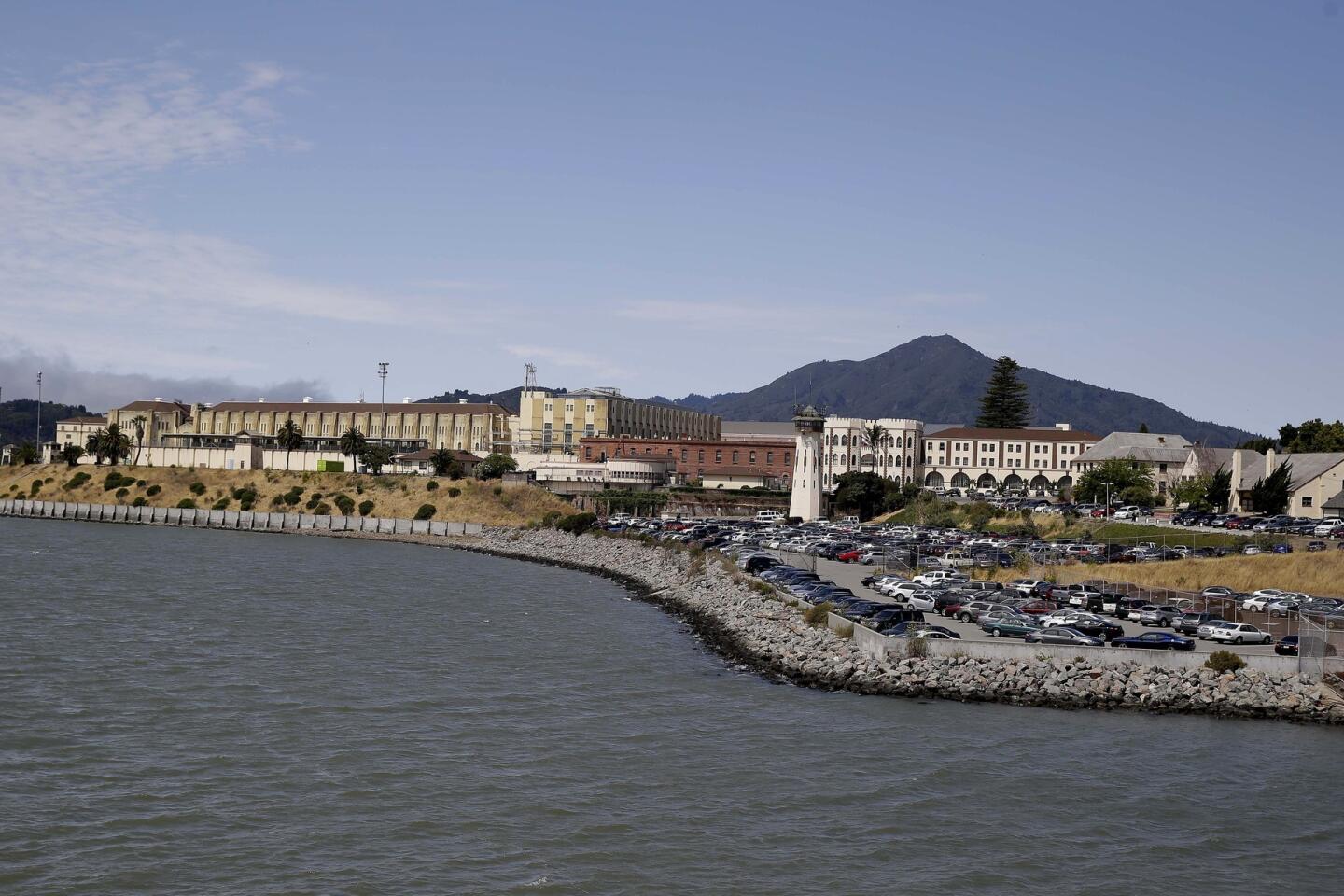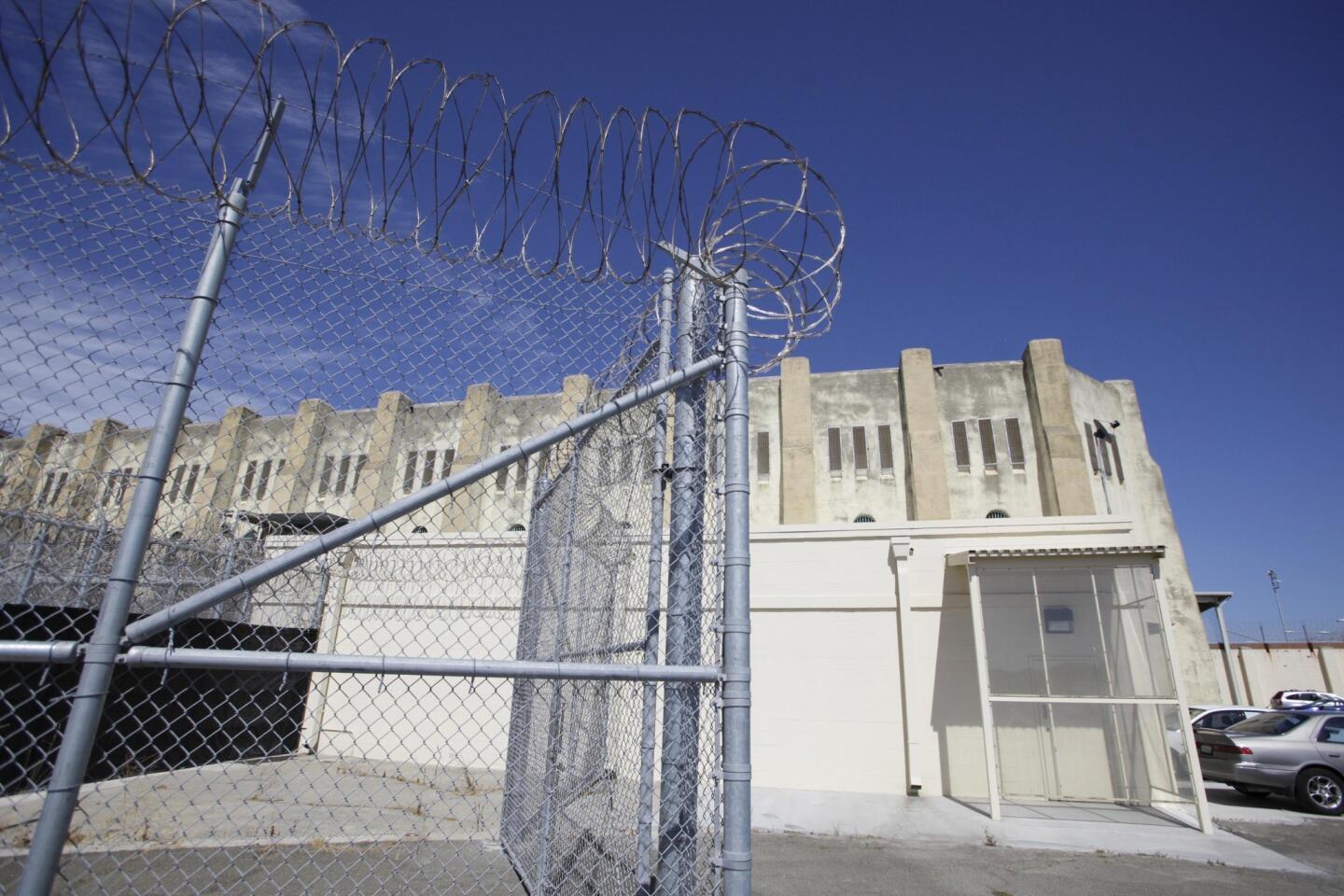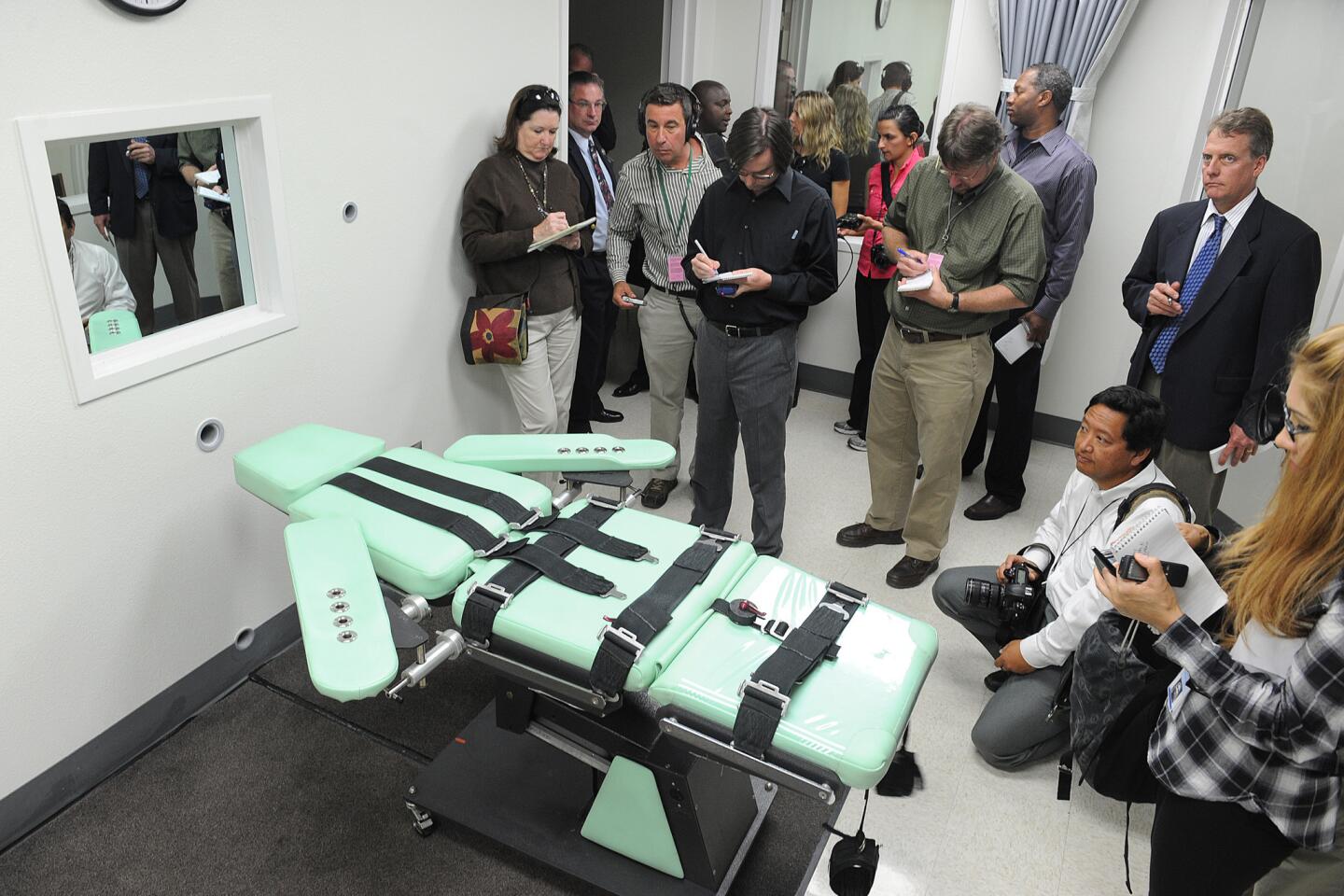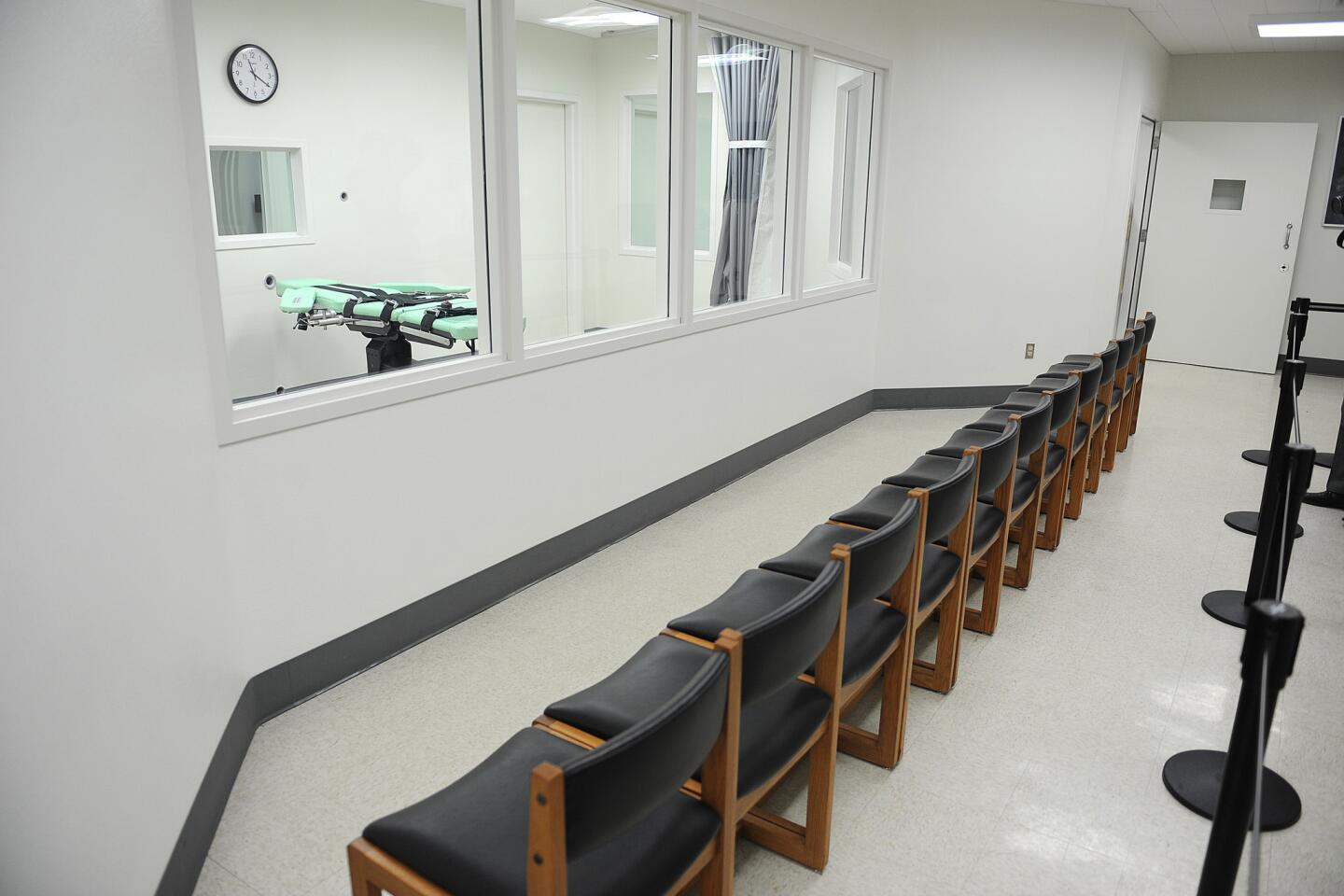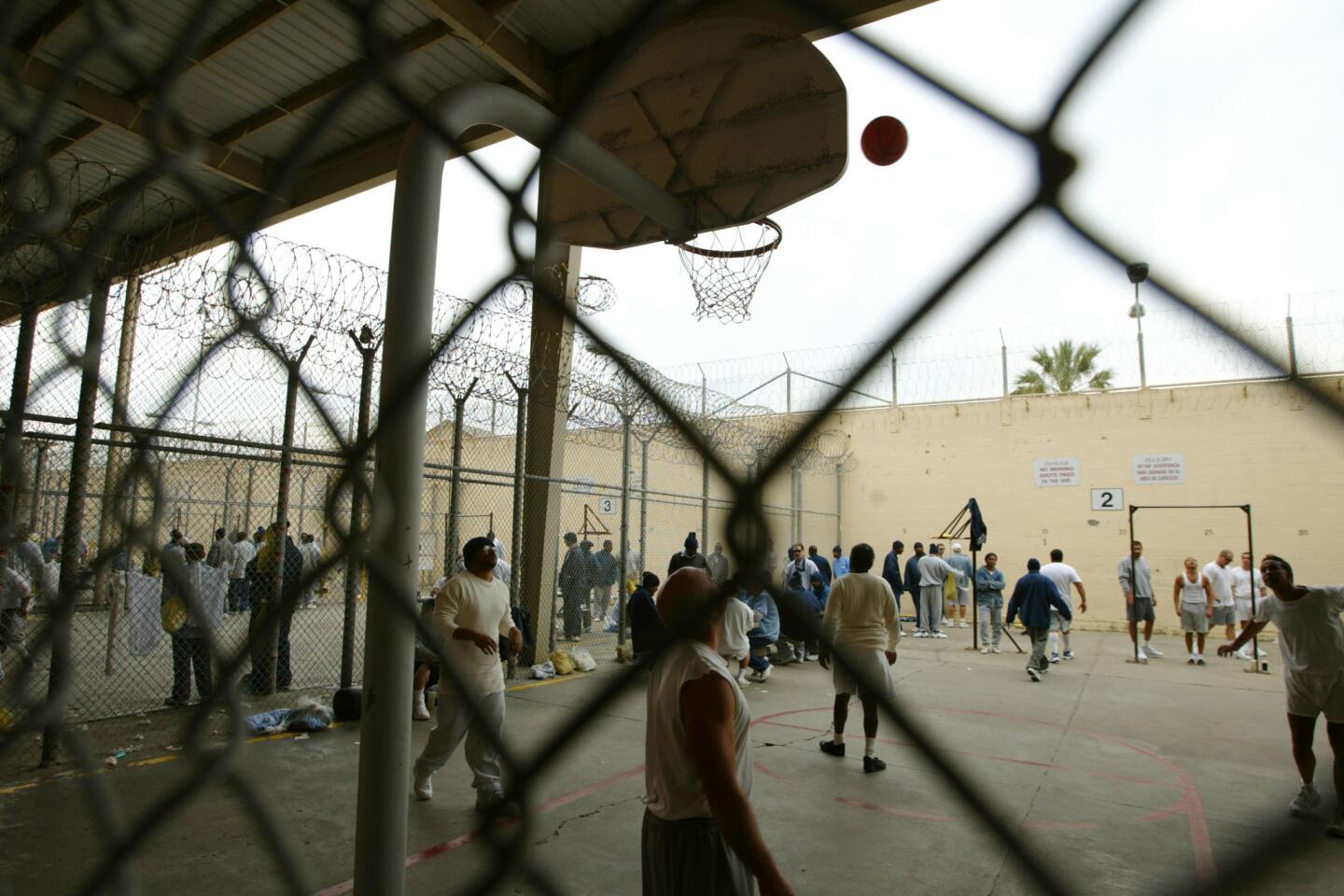Federal judge’s ruling on California death penalty stuns experts
A federal judge’s ruling that California’s death penalty is unconstitutional was described by legal experts Wednesday as stunning and unprecedented.
The ruling by U.S. District Judge Cormac J. Carney found that decades-long delays and uncertainty about whether condemned inmates will ever be executed violate the constitution’s ban on cruel or unusual punishment.
Carney issued his ruling in a decision that overturned the death sentence of Ernest Dewayne Jones, a Los Angeles man sentenced to die for the 1992 rape and murder of Julia Miller, his girlfriend’s mother.
In overturning Jones’ death sentence, Carney noted that the inmate faced “complete uncertainty as to when, or even whether” he would be executed.
He pointed out that more than 900 people have been sentenced to death in California since 1978 but only 13 have been executed.
Carol Steiker, a criminal law professor at Harvard Law School and an expert on the death penalty, described Carney’s decision as “stunning” and “path-breaking.”
“That’s a ruling of tremendous breadth,” she said. “We haven’t seen very many rulings from the federal courts declaring a whole state’s system unconstitutional. That’s quite stunning.”
Elisabeth Semel, a UC Berkeley law professor who directs the school’s Death Penalty Clinic, described Wednesday’s decision as “unprecedented in the modern death penalty in California.”
“This is an issue that has been discussed in California for decades,” she said. “What he did is both amass and synthesize what [this means] in the context of the 8th Amendment.”
Carney’s ruling applies only to Jones’ case, but will have broad significance if upheld on appeal.
Legal analysts expect Atty. Gen. Kamala D. Harris to ask the U.S. 9th Circuit Court of Appeals to review the decision. Its fate there would probably depend on which judges reviewed it. Analysts said if the ruling were upheld by the 9th Circuit, it would probably go to the Supreme Court.
“I think it has a shot in the 9th Circuit, but I don’t know about the U.S. Supreme Court,” said Santa Clara University law professor Gerald Uelmen, who was chairman of a state commission that concluded the system needed substantially more money to operate effectively. “It is conceivable that the U.S. Supreme Court and the 9th Circuit could say California is such an outlier — its system is so dysfunctional, with twice the national delay — that it cannot be sustained.”
Kent Scheidegger, a death penalty proponent and legal director of the Criminal Justice Legal Foundation, said he was confident the Supreme Court would reject Carney’s reasoning, noting the court had rejected similar claims for nearly 20 years.
The defendant still deserves this punishment for the very worst murders,” Scheidegger blogged, “and society has a valid interest in carrying it out, no matter how long it takes.”
Follow @mauradolan for news about California legal issues.
More to Read
Sign up for Essential California
The most important California stories and recommendations in your inbox every morning.
You may occasionally receive promotional content from the Los Angeles Times.
